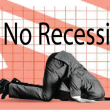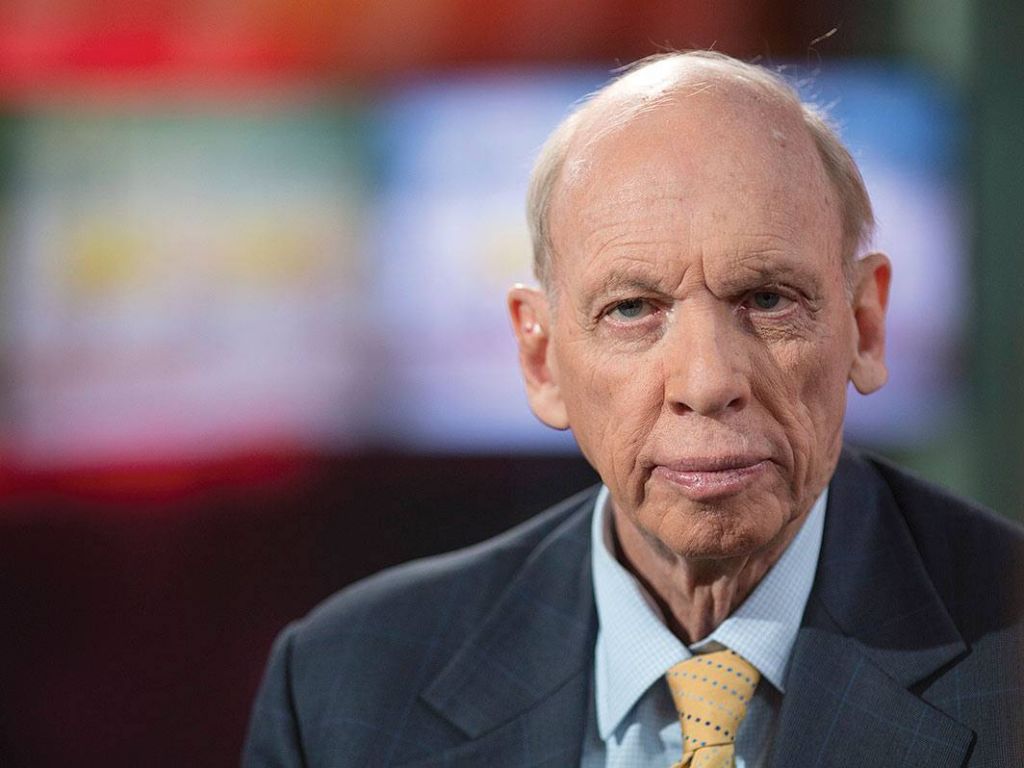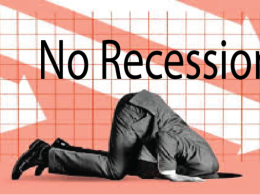by Byron Wien, The Blackstone Group
Last year, my results were on the favorable side of average for The Ten Surprises. I got six of the Surprises mostly right, but I basically missed two of the more important Surprises – the year-end drop in oil and the decline in interest rates. At the beginning of the year, almost every observer (including myself) expected the price of oil to rise as a result of increasing demand from the emerging markets. The United States was consuming 21 barrels per person per year while India was using less than two and China less than three. The expanding middle class in these countries would be acquiring motorized vehicles and using more gasoline. Even with hydraulic fracking, few expected production to increase enough to meet the demand, and so the price of oil was expected to rise. On interest rates, the U.S. economy was likely to gather momentum through the year and everyone knew the Federal Reserve was anxious to move away from its low rate policy. As a result, short-term rates would be increased and longer-term rates would rise in sympathy. Or so the consensus held.
In my first Surprise, I said we would have a “Dickensian market” with both “the best of times” and “the worst of times.” I thought the difficult part would come first because of the excessive optimism of investors in a slow economy, but the market in the U.S. didn’t really experience an important setback until September when the “correction” was about 8%. I projected the Standard & Poor’s 500 would reach a level of 2,300 by year end, and the actual high was 2,094; I got the trend right. A surprise is considered right or wrong on the basis of how reality approaches my description of the event at some point during the year, not necessarily at year-end.
In the second Surprise, I thought that growth in the U.S. economy would move toward 3%. The first quarter was quite weak, so a pick-up to that level was viewed skeptically. Nonetheless, the third quarter came in at almost 4%. I also said that the unemployment rate would move toward 6% and the last reading was 5.8%. As I expected, Fed tapering did not prove to be a big problem for either the economy or the stock and the bond markets.
For the third Surprise, I thought that the strong U.S. economy and weak conditions in other developed countries would enable the dollar to strengthen. I had the dollar/euro at $1.25 and the yen/dollar at ¥120. Most people thought I was delusional, and I was worried about this one. You know when you’re young and you’re wrong, you’re just wrong, but when you are older and you’re really wrong, people think you’ve “lost it.” That’s what concerned me, but this turned out to be my best call of the year.
For the fourth Surprise, I saw Japan doing well early in the year and poorly later on because of the sales tax increase and other factors. My view was that at some point the huge fiscal and monetary stimulus would prove ineffective in sustaining modest growth for the economy. In fact, Japan did slip back into a recession in the third quarter. The Nikkei 225 reached 17,971 in December, pretty close to my 18,000 target.
In the fifth Surprise, I saw China slowing seriously. The reported growth rate is in excess of 7%, but data on exports and industrial production seem inconsistent with such a robust view of economic activity. I thought the growth rate would be closer to 6%. The Hang Seng (Hong Kong) index made little progress during the year as I expected, but the Shanghai composite was up sharply.
For the sixth Surprise, I thought the emerging markets would have another tough year and they did. I believed, however that Mexico and South Korea would do better than most, but they were also disappointing.
In the seventh Surprise, I chose to be more bullish on the price of oil than the consensus, which was that the price would move somewhat higher. I had West Texas Intermediate going to $110 per barrel, and the price reached $107 in the summer. By year-end, however, the price was in the $50s.
For the eighth Surprise, I expected agricultural commodities to go up because of demand from the developing world as a result of rising living standards there. I got this one wrong, as reduced demand in these slowing economies caused commodity prices to fall.
In the ninth Surprise, I thought interest rates would rise more than the consensus and had the 10-year U.S. Treasury yield at 4%. At the current yield of 2.3%, this was also an erroneous view.
Finally, in the tenth Surprise, I thought the Affordable Care Act, which was getting very bad press at year-end 2013, would have a significant turn-around. The Act has been a controversial success with nine million people signed up. I thought this would help the Democrats in the November elections, but clearly it did not, and the Republicans took the Senate and gained seats in the House of Representatives.
But enough of last year. Every year I receive considerable help on The Ten Surprises from friends, acquaintances and colleagues. Since the early days George Soros and I have discussed various possibilities. I also consulted Gideon Rose, the editor of Foreign Affairs at the Council on Foreign Relations, about geopolitical issues. My Third Thursday group of former research directors of Wall Street firms (plus some newcomers) came together for their annual lunch and badgered me with ideas. In the end I picked the final ten and, right or wrong, I am accountable for them.
I am making some changes in my Radical Asset Allocation. As a result of my view of the 2015 outlook, I am cutting Europe and Emerging Markets from 10% to 5% each. I am increasing Hedge Funds from 10% to 15% because I expect better relative performance there. I am also increasing High Yield from 15% to 20% because of the opportunities in that market created by the sharp drop in the prices of energy-related bonds as a result of the precipitous drop in oil prices.
Here are The Surprises of 2015:
1. The Federal Reserve finally raises short-term interest rates, well before the middle of the year, encouraged by the improving employment data and strong Gross Domestic Product growth. The timing proves faulty, however, as the momentum of the economy has begun to flag and a short-term slowdown has started. The end of monetary accommodation and rising rates precipitate a correction in equities. Long-term Treasury rates stay where they started and the yield curve flattens.
2. Our luck runs out on cyber terrorism. Hackers invade the personal and corporate accounts of a major money center bank and the Federal Reserve orders the institution to suspend transactions for five business days while the accuracy of its balances is verified. Various government departments and agencies are mobilized to deal with the problem caused by the hackers having proved to be more skillful than our corporate cyber security efforts.
3. The year-end 2014 rally in United States equities continues as the market rises for a strong performance in 2015. A growing economy, fueled by housing and capital spending and favorable earnings, enables the Standard & Poor’s 500 to increase 15% during the year, outperforming equities in most major industrialized countries throughout the world.
4. Mario Draghi finally begins to expand the balance sheet of the European Central Bank aggressively by buying sovereign debt, mortgages and corporate bonds. In spite of this expansion, Europe falls back into a serious recession. Germany is particularly weak as reduced demand from various trading partners has a major impact on its exports. The European policy makers fail to embrace the one option, fiscal spending, that could turn the economy around, and European stocks decline. Politically, Europe moves dangerously toward the right.
5. Shock and awe no longer works in Japan. The recession which began in the third quarter of 2014 continues throughout 2015 in spite of further fiscal and monetary stimulus and the suspension of the second planned sales tax increase. The Nikkei 225 is flat for the year in yen and down in dollars.
6. China reports that it is no longer growing at 7% and that more fiscal and monetary stimulus is needed to grow at even 5% and to prevent a hard landing. It also acknowledges that it must rebalance the economy toward the consumer and away from credit-based investing in state-owned enterprises and infrastructure. What money is spent on infrastructure is focused on air, water and ground pollution, not roads and housing. A lower rate of job creation leads to protests but they are contained without excessive violence.
7. The drop in the price of oil finally has an impact on Iran. The country was dependent on its sale of crude to offset the impact of sanctions. The economic weakness resulting from the unexpected decline in oil finally forces a conciliatory attitude on the part of its nuclear negotiators. Pressure to cease nuclear weapons development comes from the Iranian people as well, as they seek more economic opportunity. An agreement to roll back its weapons program is greeted positively throughout the region and world equity markets rally briefly on the news.
8. Brent slips into the $40s. The low price of crude oil, which continues throughout the first part of the year, has a major impact on Russia. A peace settlement with Ukraine is signed, giving Eastern Ukraine substantial autonomy but guaranteeing the sovereignty of the rest of the country. President Putin seems to be trying to win back the respect of the international community as the country reels from its economic problems, but the Russian citizenry finally turns on him. His approval rating plummets and he resigns by year-end. During the second half of the year, West Texas Intermediate and Brent crude are both above $70, as emerging market demand continues to increase.
9. The year-end 2014 meltdown in the high yield market, as a result of the collapse in the price of oil, creates a huge buying opportunity. The spread between high yield and Treasurys is cut in half, and high yield becomes the best performer of the various asset classes as the U.S. economy continues to grow with no recession in sight.
10. The Republicans decide to position the party as the one that can get something done in Washington. They argue that President Obama was ineffective in his first six years, but when they got control of both the Senate and the House, legislation was passed. The Keystone pipeline finally is approved, as well as minor tax code revisions and even some changes in immigration policy. The Republicans are determined to strengthen their position with Hispanics in 2016. They want desperately to hold the nation’s highest office and they see Jeb Bush as a winner for them.
Every year there are always a few Surprises that do not make the Ten either because I do not think they are as relevant as those on the basic list or I am not comfortable with the idea that they are “probable.”
Also rans:
11. Water becomes the central environmental issue of 2015, eclipsing carbon-caused air pollution. While a shortage of water has always been a potential problem in the Western United States, it becomes a source of considerable tension in India and China, where large parts of the population do not have safe drinking water on a consistent basis.
12. Internet commerce runs into trouble. Established hotels push legislators to make Airbnb pay the same taxes and fees that they are required to charge customers. Uber is asked by local authorities to prove that its drivers have commercial insurance to protect passengers. The stocks affected decline sharply.
13. Brazil provides an emerging market favorable surprise. President Dilma Rousseff abandons some of her long-held socialist ideas and moves to the center. She introduces a number of business-friendly policies and the economy improves. It is helped more than it is hurt by the drop in the oil price. Brazil becomes a favorite of emerging market investors once again.
14. I liked this one, but I didn’t have more than 50% conviction about it. Hillary Clinton decides not to run for President. She fears that Jeb Bush would siphon off some of the votes of Hispanics, who substantially voted for Obama. Many liberals are disenchanted with Clinton and may not vote for her. She wants to be the first woman President but she doesn’t want to lose.
* * * * *
Please save the date for future Blackstone webcasts featuring Byron Wien.
Tuesday, March 31, 2015 11:00 am ET (registration details to be provided closer to the broadcast)
Thursday, July 23, 2015 11:00 am ET (registration details to be provided closer to the broadcast)
Thursday, October 1, 2015 11:00 am ET (registration details to be provided closer to the broadcast)
Please see the Investor tab of our website for future webcasts and information:
http://ir.blackstone.com/investors/events/default.aspx
Click here to view the replay of the Thursday, January 8, 2015 11:00 am ET Blackstone Webcast: “Byron Wien’s Ten Surprises of 2015,” featuring Byron Wien, Vice Chairman, Blackstone Advisory Partners.
Click here to view the replay of the Thursday, October 2, 2014 11:00 am ET Blackstone Webcast: “…and the Band Plays On,” featuring Byron Wien, Vice Chairman, Blackstone Advisory Partners.
Click here to view the replay of the Thursday, July 10, 2014 11:00 am ET Blackstone Webcast: “The Economy is Gathering Momentum. Why Doesn’t the Market Care?,” featuring Byron Wien, Vice Chairman, Blackstone Advisory Partners.
Click here to view the replay of the Tuesday, March 25, 2014 11:00 am ET Blackstone Webcast: “Warmer Weather And A Better Economy Are Ahead,” featuring Byron Wien, Vice Chairman, Blackstone Advisory Partners.
Click here to view the replay of the Tuesday, January 7, 2014 11:00 am ET Blackstone Webcast: “Byron Wien’s Ten Surprises of 2014,” featuring Byron Wien, Vice Chairman, Blackstone Advisory Partners.
The webcast presentation is downloadable from the interface.
Please click here to unsubscribe from Byron Wien’s Monthly Commentary mailing list.
*********
DISCLAIMER
The views expressed in this commentary are the personal views of Byron Wien of Blackstone Advisory Partners L.P. (together with its affiliates, “Blackstone”) and do not necessarily reflect the views of Blackstone itself. The views expressed reflect the current views of Mr. Wien as of the date hereof and neither Mr. Wien nor Blackstone undertakes to advise you of any changes in the views expressed herein.
This commentary does not constitute an offer to sell any securities or the solicitation of an offer to purchase any securities. Such offer may only be made by means of an Offering Memorandum, which would contain, among other things, a description of the applicable risks.
Blackstone and others associated with it may have positions in and effect transactions in securities of companies mentioned or indirectly referenced in this commentary and may also perform or seek to perform investment banking services for those companies. Blackstone and/or its employees have or may have a long or short position or holding in the securities, options on securities, or other related investments of those companies.
Investment concepts mentioned in this commentary may be unsuitable for investors depending on their specific investment objectives and financial position. Where a referenced investment is denominated in a currency other than the investor’s currency, changes in rates of exchange may have an adverse effect on the value, price of or income derived from the investment.
Tax considerations, margin requirements, commissions and other transaction costs may significantly affect the economic consequences of any transaction concepts referenced in this commentary and should be reviewed carefully with one’s investment and tax advisors. Certain assumptions may have been made in this commentary as a basis for any indicated returns. No representation is made that any indicated returns will be achieved. Differing facts from the assumptions may have a material impact on any indicated returns. Past performance is not necessarily indicative of future performance. The price or value of investments to which this commentary relates, directly or indirectly, may rise or fall. This commentary does not constitute an offer to sell any security or the solicitation of an offer to purchase any security.
To recipients in the United Kingdom: this commentary has been issued by Blackstone Advisory Partners L.P. and approved by The Blackstone Group International Partners LLP, which is authorized and regulated by the Financial Services Authority. The Blackstone Group International Partners LLP and/or its affiliates may be providing or may have provided significant advice or investment services, including investment banking services, for any company mentioned or indirectly referenced in this commentary. The investment concepts referenced in this commentary may be unsuitable for investors depending on their specific investment objectives and financial position.
This commentary is disseminated in Japan by The Blackstone Group Japan KK and in Hong Kong by The Blackstone Group (HK) Limited.
The views expressed in this commentary are the personal views of Byron Wien of Blackstone Advisory Partners L.P. (together with its affiliates, “Blackstone”) and do not necessarily reflect the views of Blackstone itself. The views expressed reflect the current views of Mr. Wien as of the date hereof and neither Mr. Wien nor Blackstone undertakes to advise you of any changes in the views expressed herein.
This commentary does not constitute an offer to sell any securities or the solicitation of an offer to purchase any securities. Such offer may only be made by means of an Offering Memorandum, which would contain, among other things, a description of the applicable risks.
Blackstone and others associated with it may have positions in and effect transactions in securities of companies mentioned or indirectly referenced in this commentary and may also perform or seek to perform investment banking services for those companies. Blackstone and/or its employees have or may have a long or short position or holding in the securities, options on securities, or other related investments of those companies.
Investment concepts mentioned in this commentary may be unsuitable for investors depending on their specific investment objectives and financial position. Where a referenced investment is denominated in a currency other than the investor’s currency, changes in rates of exchange may have an adverse effect on the value, price of or income derived from the investment.
Tax considerations, margin requirements, commissions and other transaction costs may significantly affect the economic consequences of any transaction concepts referenced in this commentary and should be reviewed carefully with one’s investment and tax advisors. Certain assumptions may have been made in this commentary as a basis for any indicated returns. No representation is made that any indicated returns will be achieved. Differing facts from the assumptions may have a material impact on any indicated returns. Past performance is not necessarily indicative of future performance. The price or value of investments to which this commentary relates, directly or indirectly, may rise or fall. This commentary does not constitute an offer to sell any security or the solicitation of an offer to purchase any security.
To recipients in the United Kingdom: this commentary has been issued by Blackstone Advisory Partners L.P. and approved by The Blackstone Group International Partners LLP, which is authorized and regulated by the Financial Services Authority. The Blackstone Group International Partners LLP and/or its affiliates may be providing or may have provided significant advice or investment services, including investment banking services, for any company mentioned or indirectly referenced in this commentary. The investment concepts referenced in this commentary may be unsuitable for investors depending on their specific investment objectives and financial position.
This commentary is disseminated in Japan by The Blackstone Group Japan KK and in Hong Kong by The Blackstone Group (HK) Limited.
Copyright © The Blackstone Group













